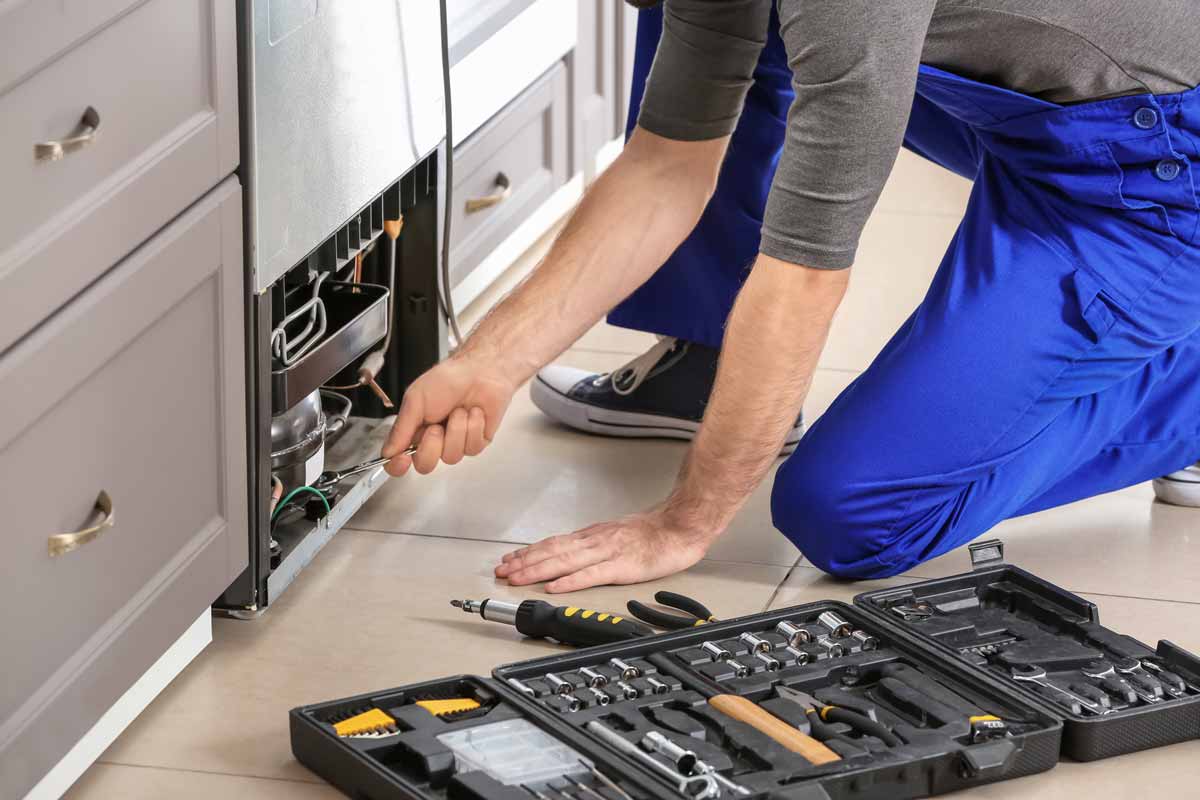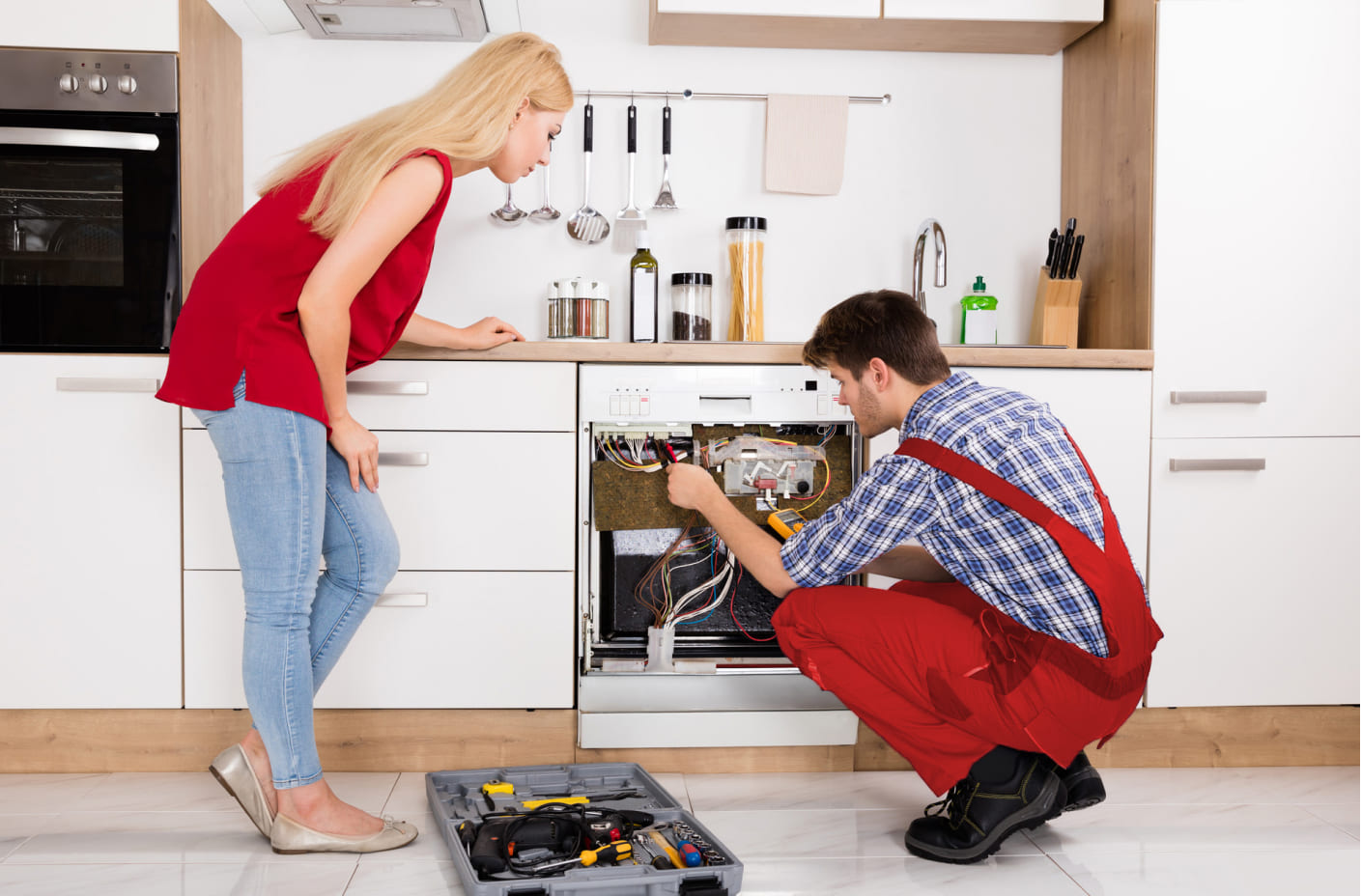Causes of Odors and How to Eliminate Them – Maytag Washing machine repair Dependable Refrigeration & Appliance Repair Service
Causes of Odors and How to Eliminate Them – Maytag Washing machine repair Dependable Refrigeration & Appliance Repair Service
Blog Article
The Ultimate Guide to Comprehending Device Repair Work in the house
When your refrigerator stops cooling down or your oven refuses to warmth, it can really feel overwhelming. Understanding home appliance repair service in your home can conserve you money and time. You'll find out to recognize symptoms, use necessary devices, and adhere to a systematic troubleshooting process. Before you start, there are critical safety and security preventative measures you need to take into account. What are the most typical troubles, and how can you repair them? Let's explore the fundamentals.
Usual Device Problems and Their Symptoms
When your appliances begin acting up, it's necessary to acknowledge the signs early. Ignoring them can bring about bigger concerns and costly fixings. If your refrigerator isn't cooling effectively, you may observe cozy spots or condensation forming. This might indicate a failing compressor or a blocked vent.Your dish washer may show issues with unclean dishes or uncommon sounds during cycles. If you listen to grinding or clanking, it's time to investigate.A washing equipment that won't rotate or drain can leave you with soaked laundry, recommending a blocked drain or a malfunctioning pump.Lastly, if your oven's temperature appears off or it takes permanently to pre-heat, you might be managing a damaged thermostat. By staying alert to these symptoms, you can attend to issues before they rise into significant repairs.
Essential Devices for Appliance Fixing
When you're taking on appliance repair services at home, having the right devices is important. Fundamental hand tools like screwdrivers and pliers will help you disassemble and repair different home appliances, while electric testing gadgets ensure you're working safely with electrical wiring. Let's look at what you need to begin on your fixing journey.
Fundamental Hand Tools
Having the right devices is important for reliable home appliance repair work in your home. Begin with a dependable screwdriver set, including both flathead and Phillips kinds, as screws prevail in home appliance setting up. Pliers are likewise essential; they assist with gripping, turning, and cutting wires or tiny elements. A pair of needle-nose pliers can reach limited areas conveniently. You'll require a good flexible wrench for tightening or loosening nuts and screws. An utility blade is useful for cutting with packaging or insulation. Ultimately, don't neglect a strong workbench or surface to securely organize your devices and components. With these fundamental hand tools, you'll be well-prepared to take on most home appliance fixings that come your means.
Electrical Testing Devices
Together with standard hand tools, electrical screening devices play a necessary function in device fixing. These devices help you identify electrical concerns and warranty appliances work safely. A multimeter is crucial; it determines voltage, current, and resistance, allowing you to identify problems promptly. A non-contact voltage tester is one more must-have, letting you discover online wires without making straight contact, enhancing your security. Secure meters are fantastic for gauging present circulation in cords without disconnecting them, saving you effort and time. Additionally, circuit testers can promptly check if electrical outlets are functioning correctly. By utilizing these tools, you'll streamline your troubleshooting process and boost your repair skills, making home appliance upkeep a whole lot easier.
Step-by-Step Guide to Diagnosing Home Appliance Issues
When your home appliance breaks down, it can be aggravating, but identifying the problem doesn't need to be overwhelming. You'll discover to recognize usual problems and use reliable repairing strategies. Allow's go through the actions to get your home appliance back in working order.
Common Appliance Problems

Troubleshooting Strategies Explained

Repairing Major Cooking Area Home Appliances: A Closer Look
Have you ever before asked yourself just how to take on usual concerns with your kitchen area home appliances? Repairing significant kitchen area devices like refrigerators, ovens, and dishwashers can be less complicated than you think. Beginning by determining the trouble-- whether it's a refrigerator not cooling or an oven that won't heat up. Usually, an easy reset or inspecting the source of power can resolve the issue.For fridges, tidy the condenser coils and examine the door seals. If your stove's not home heating, check the heating element and thermostat. Dishwashers could simply need a clean filter or a reset to obtain them back in activity. Always unplug the device before diving into repair services to guarantee your safety.Don' t fail to remember to consult the individual guidebook for details troubleshooting ideas associated with your model. With a little persistence and the right devices, you can confidently deal with device repair work and save cash in the procedure!

Troubleshooting Washing Appliances: Tips and Techniques
When your washing devices begin breaking down, it can really feel frustrating, but troubleshooting them does not have to be a hassle. Begin by examining the power supply. Confirm the home appliance is connected in and the electrical outlet is functioning. Next, evaluate the door or lid switch; a damaged switch can avoid the maker from operating.For washing machines, if it's not spinning, inspect for out of balance lots. Redistributing the clothing may address the concern. If your dryer isn't heating, clean the lint filter and examine the air vent for blockages.Listen for unusual noises; they can suggest a trouble. If your appliance is dripping, inspect the tubes for cracks or loosened links. File any kind of error codes presented on digital screens, as they can direct you in recognizing the issue. Consult the user manual for specific troubleshooting tips related to your model.
Safety Preventative Measures to Take During Repairs
Prior to you start any kind of appliance fixings, it's necessary to focus on security to avoid mishaps or injuries. Unplug the home appliance or transform off the circuit breaker to assure no power reaches it while you work. Use shielded tools to lessen the threat of electric shock. Put on safety goggles and handwear covers to shield on your own from sharp edges or debris (Lg Dryer repair near me Dependable Refrigeration & Appliance Repair Service).Make certain your work area is tidy and well-lit, so you can see what you're doing. Keep kids and pet dogs away from the area to stay clear of interruptions and potential risks. If you're dealing with gas home appliances, be extra careful; look for leaks before proceeding.Take your time, and don't hurry through repair services. If you feel unsure about any type of action, it's better to stop briefly and study than to think. Following these preventative measures will aid produce a safer atmosphere for your do it yourself device repair work project
When to Call an Expert for Aid
Exactly how do you know if it's time to call in a specialist for device fixings? If you've attempted fundamental troubleshooting without success, it's a clear indicator. As an example, if your appliance still won't start or shows uncommon sounds after resetting it, do not hesitate to seek expert help.When you discover leakages, smoke, or shedding scents, focus on safety and security and call a pro promptly. These concerns can click for more info cause even more substantial damages or posture risks to your home.Also, if your appliance is under guarantee, getting in touch with an expert is commonly the ideal path. They can ensure that repair services will not nullify your service warranty, saving you cash in the lengthy run.Finally, if you're uncertain or uncomfortable with complex fixings, it's a good idea to leave it to the specialists. Bear in mind, dealing with challenging concerns without the right you could try these out competence can cause pricey blunders. Count on an expert when in uncertainty!
Frequently Asked Inquiries
Just How Can I Stop Device Problems in the Future?
To protect against home appliance troubles in the future, you should execute routine upkeep, check for deterioration, clean filters, and stay clear of overloading. Staying proactive will help expand their life expectancy and maintain them running efficiently.
What Are the Most Typical DIY Appliance Repair Service Mistakes?
You could forget safety and security precautions, skip fixing actions, or use wrong tools when trying DIY device fixings. Hurrying the process or neglecting maker guidelines can lead to more considerable problems and costly mistakes. Remain individual and educated!
Just how Do I Know if a Component Demands Substitute?
You can tell if a part needs replacement by looking for uncommon noises, leaks, or inconsistent performance. If the appliance struggles to operate correctly or shows noticeable damage, it's likely time for a replacement.
Can I Make Use Of Generic Components for Appliance Repair Works?
Yes, you can utilize common parts for home appliance fixings, however determine they work - Dependable Refrigeration & Appliance Repair Service Washer repair near me. Common components could conserve you money, yet they could impact performance or long life, so consider your alternatives meticulously before choosing
What Warranties Cover Appliance Repairs?
Most appliance warranties cover repair services for producing problems, but they typically exclude damages from misuse. Check your service warranty terms meticulously, as some could require making use of licensed service technicians and original components for coverage to continue to be legitimate.
Report this page